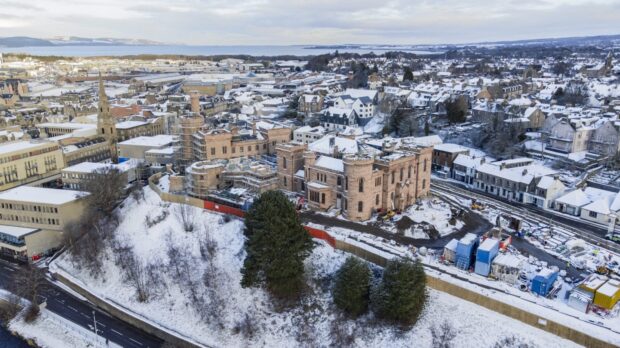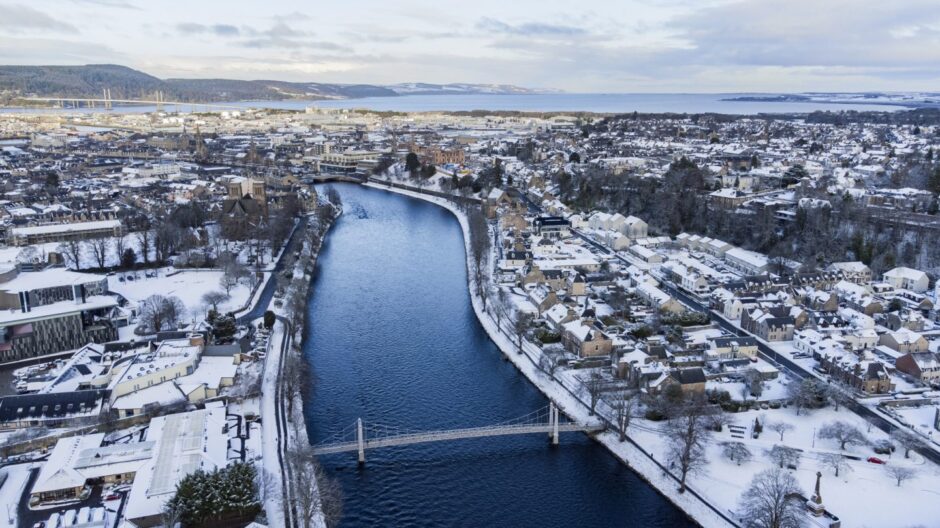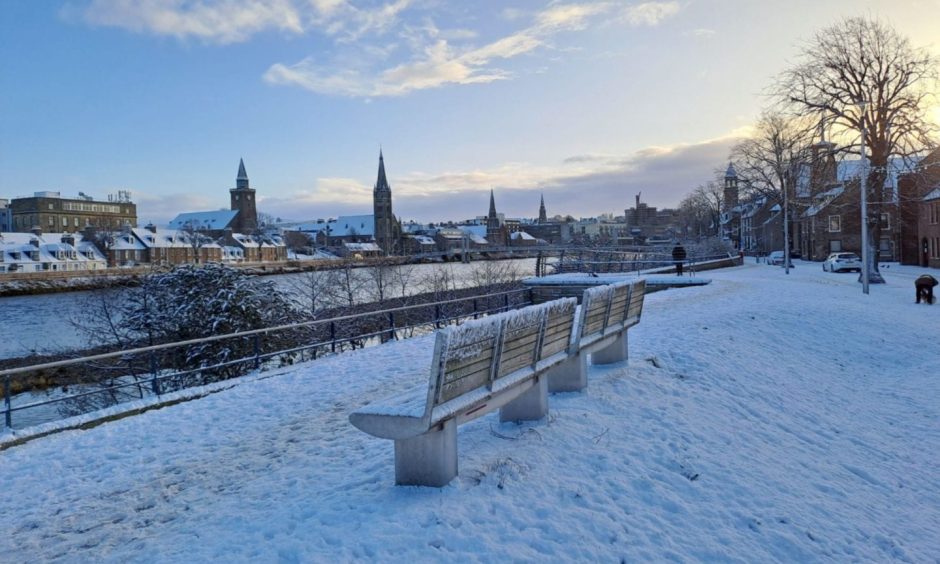More than 130 people visited Raigmore Hospital in Inverness due to falls and slips during the recent cold snap.
City residents were among victims highlighted by NHS Highland figures for unplanned attendances at accident and emergency between Jan 1-16.
They cover all slips, trips and falls, including those caused by icy conditions.
We have rounded up the stats, including the two worst areas in Inverness itself for slips, trips and falls this month.
City among areas hit by sub-zero temperatures
Snow, ice and sub-zero temperatures led to challenging conditions across many parts of the Highlands in the early part of the new year.
Weather warnings issued by the Met Office had to be extended as the weather continued to cause problems on roads and pavements.
During the worst spell school and commuter bus services had to be suspended and dozens of schools were closed.
The NHS says there were hospital visits by victims of falls on each of the 16 days covered by the figures.
These reached double figures on January 6 (when there were 15 A&E visits) and January 7 (12) as well as January 11 (14).
Top of the list of locations for fall victims over the period was IV24 around Ardgay and Bonar Bridge.
Parts of Inverness also featured prominently with 13 hospital attendances from the IV3 5 postcode area (Dalneigh).
Another 12 came from the Inverness west postcode IV3 8 – Scorguie and Kinmylies, but also covering Merkinch and the west of the city, as well as Abriachan, Bunchrew, Dochgarroch and Clachnaharry.
Hundreds of miles of roads to keep open
Highland council has around 650 miles of roads around Inverness to try to keep open during winter.
Priority is given to the 206 miles of primary routes. These are main and local distributor roads with frequent bus routes.
Next are the 170 miles of secondary routes and 278 miles of tertiary routes.
The authority operates 17 gritters and 10 footpath tractors around the city.
Footpaths in the main shopping areas are treated first, followed by paths serving schools, hospitals and other commercial areas as the weather allows.
There are 614 grit/salt bins across the city, generally in places with steep gradients where there is not a regular road or footway gritting service.
Under a winter resilience scheme, groups can apply to carry out footway gritting with equipment provided by the council.
Correct footwear needed for icy conditions
Ken Gowans, chair of the council’s economy and infrastructure committee, said: “We have had extreme temperatures, going down to double digits below zero which is a challenge for everybody.
“People have to be extra careful and make sure they wear the correct footwear.”
Mr Gowans, who praised winter maintenance crews during the cold snap, added: “When we’re hit hard with poor weather everyone needs the service at the same time.
“We have machines specifically designed to clear and grit pavements.
“We tend to concentrate on a lot of the elevated areas as they are more likely to freeze and if you are on a hill you’re more likely to slip.”
NHS Highland also offered tips to help avoid slips and falls in icy conditions.
This includes taking extra time on journeys, avoiding rushing or taking shortcuts over areas where snow or ice has not been removed.
It also advises wearing flat footwear with rubber soles, keeping both hands free for balance, and to be particularly careful getting into and out of vehicles.
For more Inverness news and updates visit our dedicated page and join our local Facebook group.




Conversation